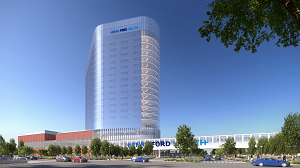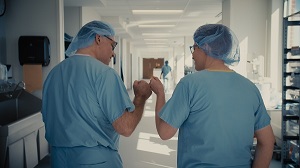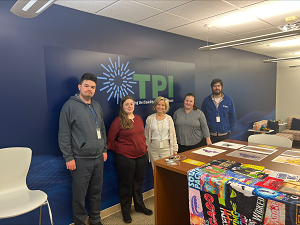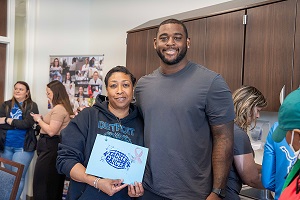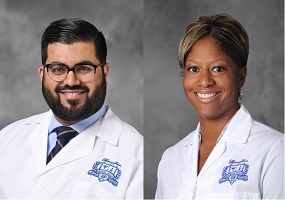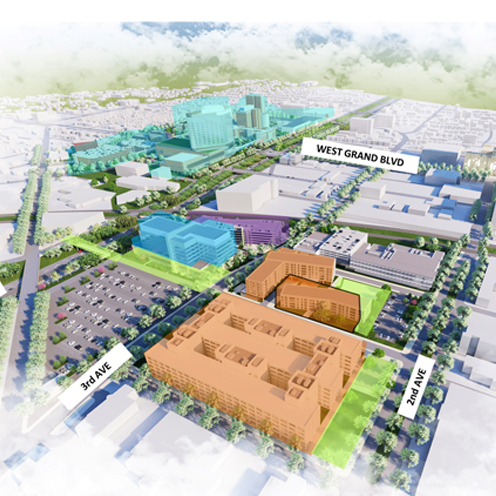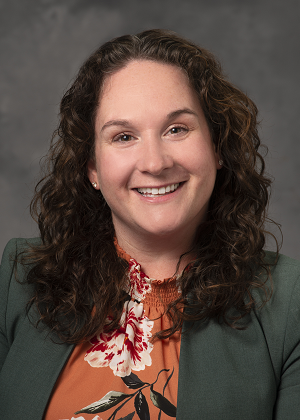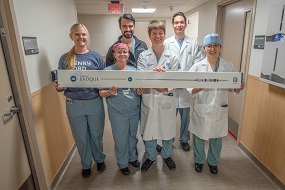New Trauma Recovery Center Promises to Provide Holistic Support for Survivors
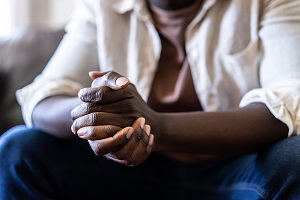
DETROIT— Sean English spent almost three weeks at Henry Ford Hospital in Detroit with traumatic injuries after a roadside crash.
During that time, the then-16-year-old was rarely alone. Hospital staff provided round-the-clock care. His mom and dad were a constant presence. Some days there were so many people who wanted to see for themselves that he was OK, his parents limited visits to 3 minutes so that everyone had a chance to wish him well.
Seven years later, English says he still appreciates the family, friends and acquaintances who came to see him; but it’s a visit from a young man who’d learned about his injuries in the news that stands out to English the most.
As the family drove to Sunday Mass in 2017, English’s dad pulled over on the side of I-96 near the Davison Freeway in Detroit. There had been a crash, and the Englishes stopped to help. As Sean got out of the vehicle, a passing car hit another good Samaritan, then him, pinning him to the family’s SUV. His leg was crushed and his foot was severed.
The stranger who came to visit English in the hospital knew the difficult physical and emotional road that lay ahead.
“He danced around, jumped around, told me he plays lacrosse and skis, and his prosthetic leg is nothing but an extra thing to put on in the morning,” English recalled. “I saw a real-life example of living through my injuries.”
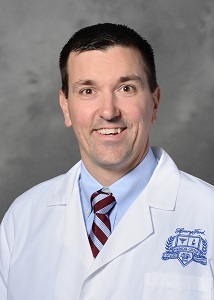 The inspiring interaction is one orthopedic surgeon Dr. William Hakeos, trauma surgeon Dr. Jeffrey Johnson and psychologist Dr. David Moore hope to replicate for the thousands of trauma patients that stay at Henry Ford Hospital each year as the system launches the first Trauma Recovery Center (TRC) in Michigan.
The inspiring interaction is one orthopedic surgeon Dr. William Hakeos, trauma surgeon Dr. Jeffrey Johnson and psychologist Dr. David Moore hope to replicate for the thousands of trauma patients that stay at Henry Ford Hospital each year as the system launches the first Trauma Recovery Center (TRC) in Michigan.
In 2023, Michigan lawmakers passed House Bill 4437, allocating $4 million in federal funds for the establishment of two TRC programs in Michigan. Henry Ford is on track to receive a portion of that funding.
The TRC began to take shape at Henry Ford Hospital in 2021. Dr. Hakeos and Dr. Johnson noted that while their patients had many resources to aid in their physical healing, resources for dealing with the psychological effects of a traumatic injury are scarce.
“All the time I sit in the clinic and see patients struggling not because their bones aren’t healing, but because of all the other psychological and emotional issues that come with sudden traumatic events like violent crime, a car crash or some other unexpected injury,” Dr. Hakeos said.
About 50 TRCs exist nationwide with the goal of maximizing the psychological recovery of traumatically injured patients by connecting survivors to mental health services, education, and other resources when they leave the hospital.
The Henry Ford TRC builds on a model that originated at the University of California-San Francisco and incorporates a peer mentorship component inspired by a similar program at MetroHealth System in Cleveland.
State funding will allow Henry Ford to hire up to 6 professionals to staff the TRC, which will serve survivors throughout their recovery. The TRC team is also recruiting trauma survivors to serve as peer mentors. Trauma survivors who complete peer mentorship training will visit with and support trauma patients admitted to Henry Ford Hospital who are open to being cared for through the TRC.
Dr. Moore, a senior staff clinical psychologist and director of the hospital’s Trauma and Acute Care Surgical Psychology Service, and specialized social workers will continue to visit trauma patients while they’re in the hospital. 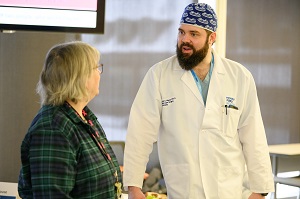
“Trauma is something that turns the world upside down. No one can plan for it,” Dr. Moore said, “So the TRC isn’t just about providing mental healthcare, it’s about eliminating barriers so that survivors can get access to the range of services that they need.”
When patients leave the hospital, they may choose to transition to outpatient behavioral health services through the TRC, where they will have immediate access to behavioral healthcare and comprehensive case management services.
Trauma survivors are at high risk for mental health issues and other challenges that can lead to job and housing instability and otherwise disrupt family life. The TRC can help mitigate challenges by connecting the survivor and their family to outpatient medical care, non-trauma related mental health services, victim services or peer counseling. The TRC partners with community organizations to help survivors address basic needs such as food, housing and transportation.
Advocates say establishing trauma recovery centers in Michigan is crucial, particularly for addressing survivors’ mental health needs.
“When these issues aren’t addressed, people are more likely to become part of the criminal justice system, experience substance abuse, and be revictimized,” explained Dr. Moore. “Especially here in Detroit, where we’ve historically had some of the worst violent crime in the country, there needs to be a better way to support trauma survivors.”
One in four Michiganders have been the victim of crime in the past 10 years and may report experiencing trauma as a result. Yet, according to a recently released national report, less than one in three crime victims receive help to recover.
In 2023, there were 2,313 trauma patients treated at Henry Ford Hospital. Nearly 70% of those patients are on Medicare or Medicaid or are uninsured.
Due to low reimbursement rates, many outpatient behavioral health service providers don’t accept Medicaid plans. According to research by the Kaiser Family Foundation, only 30% of the need is met for mental health care professionals in the state of Michigan.
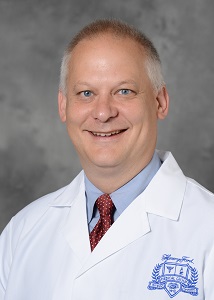 “If we can connect survivors with mental health services in the community and peer mentors who have been through a similar situation and can talk them through what’s ahead, I really believe we can help people heal both physically emotionally and prevent them from going back into the world hurt, angry and financially devastated,” said Dr. Johnson.
“If we can connect survivors with mental health services in the community and peer mentors who have been through a similar situation and can talk them through what’s ahead, I really believe we can help people heal both physically emotionally and prevent them from going back into the world hurt, angry and financially devastated,” said Dr. Johnson.
English describes his conversation with the fellow trauma survivor and amputee as “transformative.”
“I was able to ask questions,” he said. “Knowing he was active and living a normal, happy life gave me an attainable goal to keep in mind as I progressed through my recovery.”
After more than a dozen surgeries—many related to the amputation of his leg—he went on to finish his high school track career on his prosthetic leg. After graduating from Purdue University in May 2023, he’s working as a broadcast journalist in Indiana. He hopes to one day return to Detroit and make a living as a motivational speaker.
“When I do, I’ll definitely be volunteering for the peer mentor program,” he said.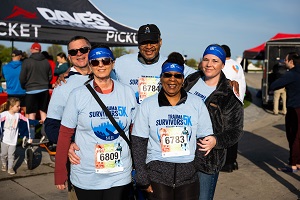
English will share his journey on May 4 at the Trauma Recovery Center’s 2nd Annual Trauma Survivors Celebration Run/Walk at Belle Isle. Funds raised through the event help ensure the TRC can serve all survivors regardless of insurance or financial status.
Any provider can refer patients to Henry Ford’s TRC. If you or someone you know may benefit from support services offered through the Trauma Recovery Center, or you are interested in supporting trauma survivors as a peer mentor, email TRC@hfhs.org.
###
MEDIA INQUIRIES: mediarelations@hfhs.org
.svg?iar=0&hash=F6049510E33E4E6D8196C26CCC0A64A4)

/hfh-logo-main--white.svg?iar=0&hash=ED491CBFADFB7670FAE94559C98D7798)
